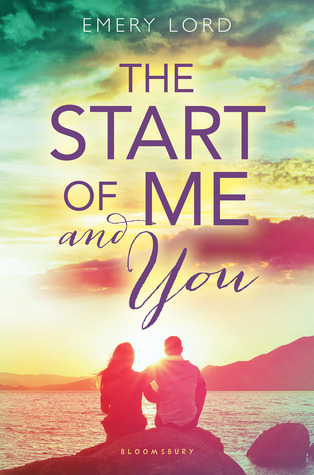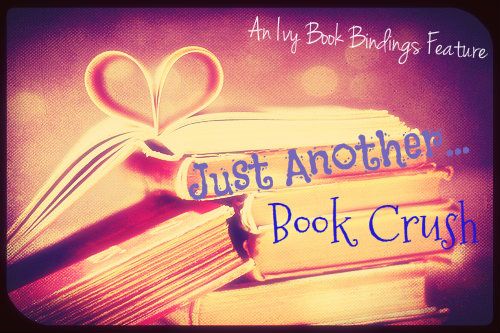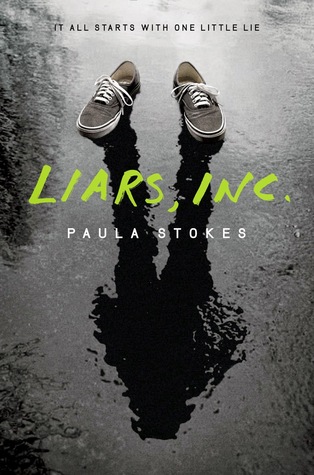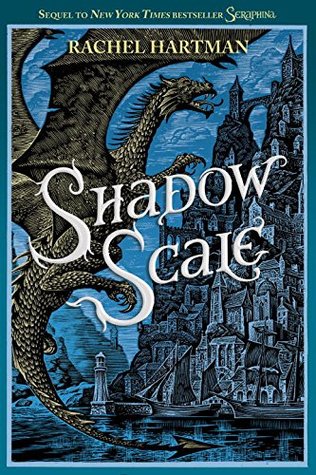Kristin and Marie Rutkoski were meant to give a joint event with Q&A at the Harvard Bookstore, roughly an hour away from where I attend school in Massachusetts, but Marie, unfortunately, couldn't make it. Luckily for me, though, this still meant I could meet Kristin Cashore and that the entire event was dedicated to asking her questions and simply basking in the glory that is the Seven Kingdoms trilogy. Kristin mostly answered a LOT of questions, the most interesting of which I have transcribed below, but she also commented a little bit on The Winner's Crime, Marie's latest novel which I have reviewed HERE. If you are interested in obtaining the full, 47-minute Q&A dialogue with Kristin just e-mail me and I'd be happy to send it over. I have it saved for posterity on my iPhone and will likely cherish it forever because Kristin Cashore!
Kristin on The Winner's Crime: I guess what I love about Marie's books and these ones in particular is that it's just got a certain emotional intelligence. They're very plot driven, they're definitely page turners, but the characters are believable, emotional characters and it's their feelings, their hearts that are driving the plot.
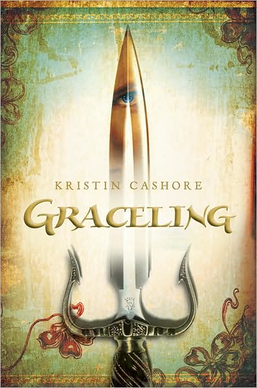
Q: So you're working on something now? I've been waiting for a very long time.
Kristin: I have two things in revisions right now. One is contemporary realistic YA and one is really weird. It's sort of a genre crossing bizarre thing that I can't really talk about because it could change but that weird one is probably going to be my next book that comes out. I'm also drafting a new fantasy that I am forbidden to say anything about.
Q: Graceling, Fire, and Bitterblue are all interconnected. Did you plan that from the beginning?
Kristin: So I was writing Graceling and there's a scene where Katsa and Po are talking about where Leck came from and he says he came to the Monsean court and would tell these stories about a land where monsters rise out of the rocks and armies ride out of the tunnels and I just made that up; I needed the stories to be about something. But I kept thinking about that and wondered what does that mean? What if that was the one thing that Leck said that was actually true? What is that place? And Fire grew from that. And because Fire takes place in another land I was able to do a much better job with world-building. [...] I was in the Jacksonville Public Library on the balcony having a conversation with my mother and I was like, "OH, thank god I'm almost done writing fantasy, I'm so tired of writing fantasy!" and she said, "You know who I really wonder about?" and I said "Who?" and she said "Bitterblue." And I knew that was going to be the next book; that's what all of this has been leading toward because let's actually deal with what this man did and Bitterblue is the one who had to get to the end of her story. How do you deal with what she dealt with?
Q: Are there any characters that seem smaller but in your head have a much bigger story but you don't get to tell it within the book?
 Kristin: One character who probably doesn't seem small to anyone but in fact is bigger than he is in the book is Po. I hope someday I'll get a chance to write something from his perspective because I really think no one can quite understand what it is he's dealing with all the time in his own head and his own experience of just getting around in the world. But what I've noticed is that a lot of times it's some of my throwaway, on-the-side men who I'm just using as some sort of tool for the book, like Gideon for example, Gideon in Graceling who I hated--I just hated--and afterwards on book tours some people said to me, "You know who I really feel sorry for? Gideon," and I thought, "What if Gideon grew up? And changed and evolved?" I started Bitterblue not expecting him to be so important but he became really important. I don't really think about the characters except as they exist in the books so if I do start thinking about someone having a larger characterization it's probably because I'm hoping to write another book.
Kristin: One character who probably doesn't seem small to anyone but in fact is bigger than he is in the book is Po. I hope someday I'll get a chance to write something from his perspective because I really think no one can quite understand what it is he's dealing with all the time in his own head and his own experience of just getting around in the world. But what I've noticed is that a lot of times it's some of my throwaway, on-the-side men who I'm just using as some sort of tool for the book, like Gideon for example, Gideon in Graceling who I hated--I just hated--and afterwards on book tours some people said to me, "You know who I really feel sorry for? Gideon," and I thought, "What if Gideon grew up? And changed and evolved?" I started Bitterblue not expecting him to be so important but he became really important. I don't really think about the characters except as they exist in the books so if I do start thinking about someone having a larger characterization it's probably because I'm hoping to write another book.But characters can really surprise you, they can grow on you. In Fire it was Nash. I really didn't know I was going to end up caring for him. In fact, Nash was supposed to die in the scene where he gets attacked. I didn't keep him alive for my own purposes, I kept him alive because I realized I couldn't do this to Fire or she would never recover. It wasn't the story I wanted to tell. But I was, nonetheless, personally happy to keep him alive.
Q: One of the things that I loved in Bitterblue was the cipher and the coding. I found it really interesting and I always wondered where it came from.
 Kristin: Bitterblue is one of those characters that likes a lot of things I don’t like; a lot of things I’m not wonderful at. I find ciphers really boring. But, in this book, I had to learn about them and write them. I don’t entirely remember but I know that it seemed realistic to me that Bitterblue’s mother would have tried to convey something and that her father would have, in his self-important way, would need to write in a complicated cipher in a language that no one but him spoke. One of my sister’s made the symbols for the cipher and I hired a friend, who also created the Dellian language for me. I didn’t ask him to create it for me—I just needed three words—but he said, “Well, I’ve basically created a program. It sounds amazing but it’s really not. It was just the easiest way.” It’s really cool but he could translate anything for me into Dellian. He said, “Oh yeah, I just brought English back a few steps into an earlier language and then I brought it forward a few steps into a language that could be created by a mountain.” It’s a really good language; he created a really good language for me. But he created the cipher for me, too.
Kristin: Bitterblue is one of those characters that likes a lot of things I don’t like; a lot of things I’m not wonderful at. I find ciphers really boring. But, in this book, I had to learn about them and write them. I don’t entirely remember but I know that it seemed realistic to me that Bitterblue’s mother would have tried to convey something and that her father would have, in his self-important way, would need to write in a complicated cipher in a language that no one but him spoke. One of my sister’s made the symbols for the cipher and I hired a friend, who also created the Dellian language for me. I didn’t ask him to create it for me—I just needed three words—but he said, “Well, I’ve basically created a program. It sounds amazing but it’s really not. It was just the easiest way.” It’s really cool but he could translate anything for me into Dellian. He said, “Oh yeah, I just brought English back a few steps into an earlier language and then I brought it forward a few steps into a language that could be created by a mountain.” It’s a really good language; he created a really good language for me. But he created the cipher for me, too.
You do remind me, though, of one of the sweeter moments. My mother sent me an e-mail after reading Bitterblue and it was a cipher and she didn’t give me the key to it. Of course, it was my name, just as the cipher in Bitterblue was Bitterblue’s name. It was a very sweet moment.
Q: I think all your books are focused on a theme, like womanhood. Do you start out with a theme because they all seem really focused?
Kristin: I start out with something that is beyond the plot and characters; just some sort of emotional story that I’m trying to tell, for every book. It can be a complicated one but I’m always going back to that.
Q: I think one of the great things about your books—and Marie’s—is that they have such strong female characters. Is there one that you identify with more that was easier to write?
Kristin: Easiest to write was Katsa because she’s so emotionally unaware. I guess if I had to say, there are certain ways I relate to all of them. Bitterblue is just a regular girl, she doesn’t have any special powers, so I related to her. But she’s like my daughter; they all start to feel more like my kids.
Q: What about Kestrel or Arin?
Kristin: I’m not as clever or manipulative as Kestrel. I’m too honest and she’s an actor. I would love to be like her; she really plays the long game. I think I’m more like Arin. Marie is more like Kestrel, though. You kind of have to be able to think that way to write a character like that.
I don't think I can put into words what an incredible experience this was. Kristin Cashore's novels--her words--are ones I've gone back to time-and-time again; they've been with me through thick-and-thin and though they are mere pieces of paper, bound together, they are so near and dear to my heart. I've dreamed about meeting Kristin myself for years and she was just as poised, charming, and intelligent as I imagined--if not more. I wait with bated breath, both for what she will write next and for the next author to grace my radar because after this, there is no doubt in my mind that I will be queuing up to attend more book events. :)
I don't think I can put into words what an incredible experience this was. Kristin Cashore's novels--her words--are ones I've gone back to time-and-time again; they've been with me through thick-and-thin and though they are mere pieces of paper, bound together, they are so near and dear to my heart. I've dreamed about meeting Kristin myself for years and she was just as poised, charming, and intelligent as I imagined--if not more. I wait with bated breath, both for what she will write next and for the next author to grace my radar because after this, there is no doubt in my mind that I will be queuing up to attend more book events. :)

.JPG)
.JPG)


